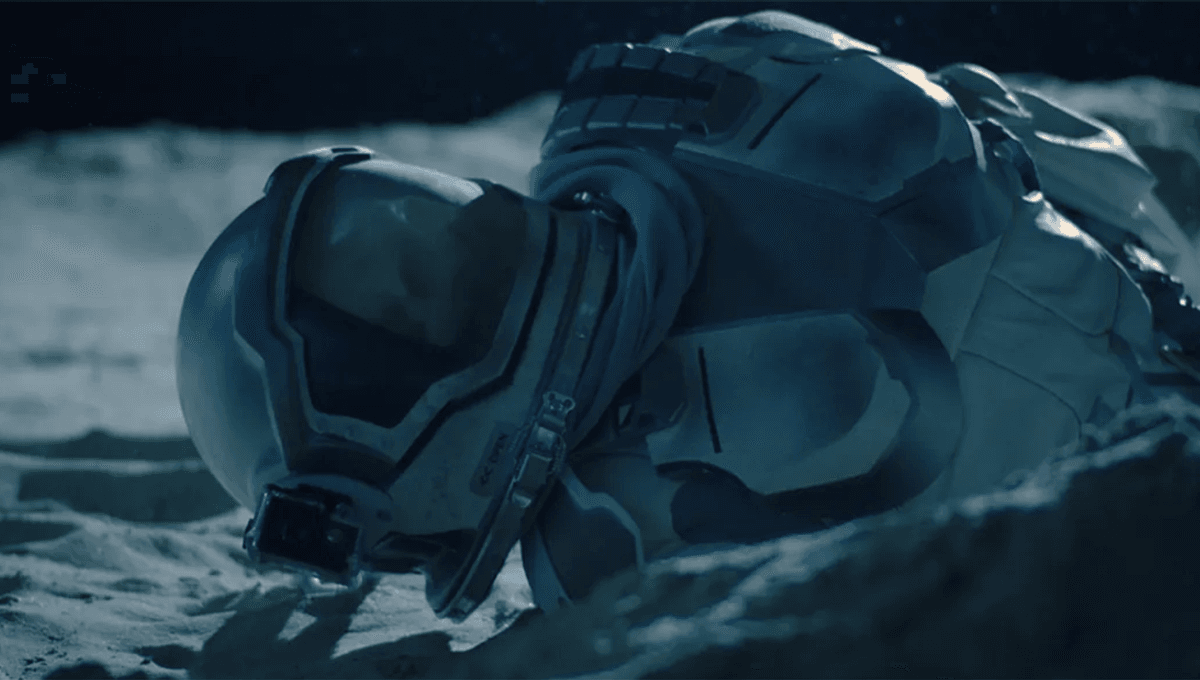
When you die on Earth, you generally know what will happen to your body, even if you’d rather not. But what happens to it if you die in space, on the Moon, or on the way to the Moon?
Though it’s not something NASA likely wants to think about, the space agency does have plans in place in the event of a death in space. According to astronaut and former commander of the International Space Station Chris Hadfield, the space agency even runs “death simulations” with astronauts looking at these scenarios.
“If someone died while on an EVA I would bring them inside the airlock first,” Hadfield said of his conclusion from one such exercise. “I would probably keep them inside their pressurized suit; bodies actually decompose faster in a spacesuit, and we don’t want the smell of rotting meat or off gassing, it’s not sanitary. So we would keep them in their suit and store it somewhere cold on the station.”
Onboard the International Space Station (ISS), the problem could be dealt with relatively swiftly: Temporary storage in the cooler part of the ISS, followed by possibly the most awesome hearse collection/funeral cortege in human history.
“The final disposition of remains will follow, with the ISS Program Office responsible for the final determination of remains disposition,” NASA outlines in guidance. “For a crew fatality occurring on the ISS, options would be limited to the return of remains, jettison to a disposal trajectory, or destructive reentry.”
Of course, the crew’s wishes, submitted to NASA, would be taken into account in the event of such a death. On longer missions – say, to Mars – other solutions could be necessary.
You could, of course, jettison the body out into space, turning a former colleague into potentially dangerous space debris. This actually goes against a UN space debris mitigation agreement, potentially turning that touching send-off into an international incident.
One alternative proposed by a research team set up by NASA could be to attach the corpse, inside a bag, to a robotic arm on the outside of the spaceship. The body would freeze solid, at which point the arm would begin to vibrate the bag for 15 minutes until the brittle body has been reduced to small pieces. Water is allowed to evaporate out of the bag through a vent, leaving the ship with about 25 kilograms (55 pounds) of remains to bring home to Earth.
As Susanne Wiigh-Masak of eco-friendly burial company Promessa told Vice, “Everything on the ship has to be very minimal and carefully weighed and stored. There’s not a lot of extra room, so if you have a full-sized deceased body, where are you going to keep it?”
To this end, there would only need to be the same number of body bags as crew members, minus one. As Wiigh-Masak said, the extra bag “couldn’t fill itself”.
But what happens to your body if you make it to the Moon, only to die there?
In terms of process, there isn’t much that has been set out – it would likely come down to a discussion between astronauts on the mission and the team back on Earth, as well as the astronaut’s own wishes. NASA takes great care not to contaminate other bodies in the Solar System and would prefer that bodies be cremated in order to kill off all Earth microbes, if the body isn’t taken home by their crew.
If that isn’t possible – say something happened to the whole crew – it could be that they are buried or left on the surface of the Moon.
If you are left on the surface of the Moon, you will not decompose as you would here on Earth. If you die during the lunar daytime, the bacteria inside you would begin the normal process of breaking down your body, assuming your astronaut suit still kept you contained. This wouldn’t last long or be very effective, however, as the water in your body would quickly evaporate away in the near-vacuum environment. Once the long lunar night (14 Earth days) hits, your body will freeze and the bacteria will be stopped in their tracks entirely, if they haven’t been already. With no bacteria to decompose you, your soft tissues remain safe and you will start to become a Moon mummy.
Without the protection of Earth’s atmosphere and magnetosphere, radiation would break down your body further, but over a much longer timescale, possibly leaving your bones to find tens of millions of years in the future.
The temperature variation on the Moon, fluctuating up to 127°C (260°F) during the day to -173°C (-280°F) at night, would also have an effect on your body, potentially breaking it apart as you freeze and thaw in perpetuity.
Burial, while protecting you from radiation at the surface, would subject you to consistently cold temperatures, likely leaving your mummified remains intact for some time.
All in all, if you’re going to die, it’s probably best to try to do it on Earth, where it isn’t a logistical nightmare for space agencies.
Source Link: If An Astronaut Died On The Moon, What Would Happen To Their Body?